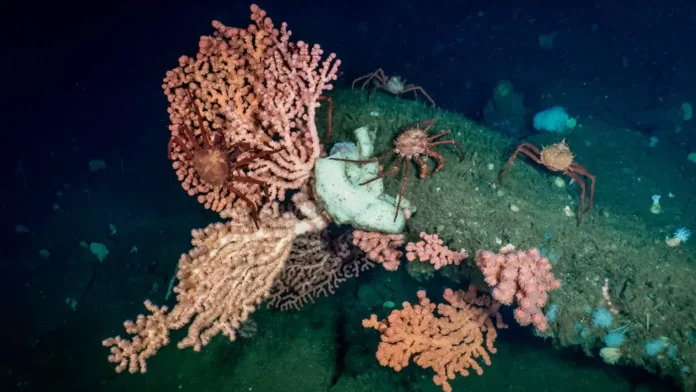The Biden administration has taken a crucial step towards preserving the rich cultural and ecological heritage of California’s coast. In a move that recognizes the Indigenous Chumash people’s deep connection to the region, the administration has proposed the creation of the Chumash Heritage National Marine Sanctuary.
This proposed sanctuary, originally put forth by Fred Collins, the leader of the Northern Chumash Tribal Council, would be the first Indigenous-proposed national marine sanctuary in the United States. It is a significant step towards acknowledging and honoring the Indigenous communities’ role in protecting and preserving our natural resources.
The Chumash Heritage National Marine Sanctuary, spanning over 140 miles of California’s coastline, would provide a safe haven for a diverse range of marine life, including endangered species such as whales, dolphins, and sea otters. It would also safeguard vital habitats such as kelp forests, seagrass beds, and rocky reefs, which are essential for the health of our oceans.
But this proposed sanctuary is more than just a protected area for marine life. It is a testament to the enduring relationship between the Chumash people and the ocean. For thousands of years, the Chumash have lived along the California coast, relying on the ocean’s resources for sustenance and cultural practices. The creation of this sanctuary is a recognition of their deep connection to the sea and their continued efforts to preserve it.
The Chumash Heritage National Marine Sanctuary would also serve as a living museum, showcasing the Chumash people’s rich cultural heritage. The sanctuary would include areas of cultural significance, such as ancestral village sites, sacred sites, and traditional fishing grounds. It would provide a platform for the Chumash people to share their history, traditions, and knowledge with the world, ensuring that their culture and heritage are not forgotten.
Moreover, the creation of this sanctuary would bring economic benefits to the surrounding communities. The sanctuary would attract tourists and researchers interested in learning about the Chumash people and their way of life. It would also provide opportunities for the Chumash people to engage in sustainable tourism and ecotourism, generating income for their communities.
The proposal for the Chumash Heritage National Marine Sanctuary has garnered widespread support from environmental groups, scientists, and local communities. It is a testament to the collaborative efforts of the Chumash people, government agencies, and stakeholders in protecting our oceans and preserving our cultural heritage.
The Biden administration’s decision to take this penultimate step in designating the sanctuary is a promising sign of their commitment to conservation and recognition of Indigenous communities’ rights. It is a stark contrast to the previous administration’s disregard for environmental protection and Indigenous rights.
The creation of this sanctuary aligns with President Biden’s pledge to conserve at least 30% of U.S. lands and waters by 2030, known as the “30×30” initiative. This ambitious goal aims to protect and restore our natural resources for future generations, and the proposed Chumash Heritage National Marine Sanctuary is a significant contribution towards achieving it.
In conclusion, the proposed Chumash Heritage National Marine Sanctuary is a symbol of hope, collaboration, and progress. It represents a step towards healing the wounds of the past and building a better future for our planet and its people. Let us support this initiative and continue to work towards preserving our natural and cultural heritage for generations to come.

